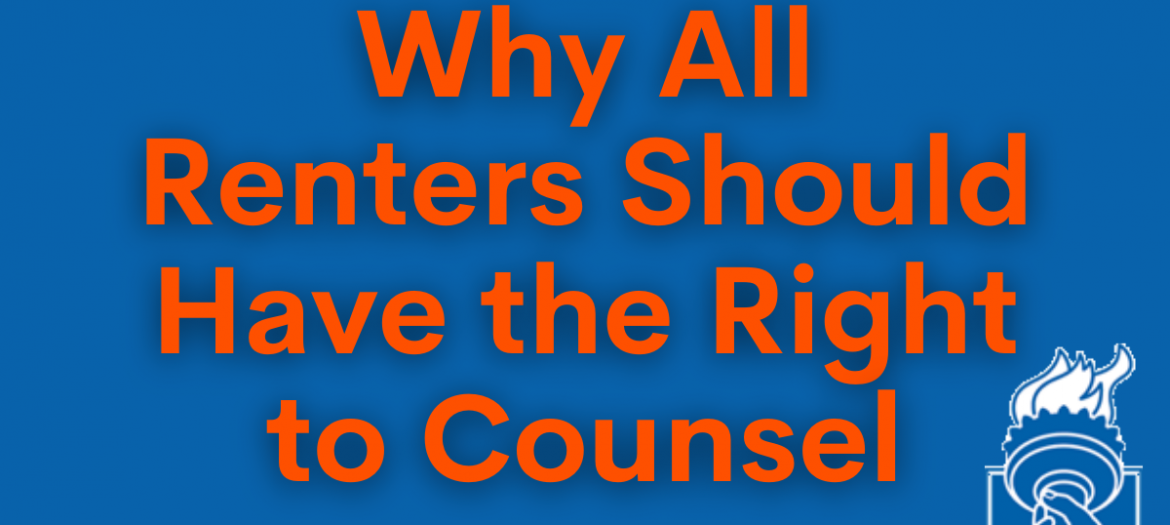Most Americans know and value the promise of the right to legal counsel if they are accused of a crime, even if they cannot afford to pay for that attorney themselves. Many don’t realize that if you are the victim of a crime, wrongfully fired from your job, or facing an eviction claim, you do not have that same right to a lawyer.
The problem is that the average person without a law degree cannot reasonably be expected to be aware of all the rights and defenses they have in each type of legal proceeding. Court systems are complex and laws are not always written in ways that are easy to find, let alone understand.
When only one party to a court case is represented by a lawyer, outcomes are more likely to be unfair. Specifically in the context of eviction cases, the National Coalition for a Civil Right to Counsel (NCCRC) found that on average 81% of landlords and just 3% of tenants have legal representation. That’s not ensuring justice for all.
When municipalities, such as Milwaukee County, ensure the right to counsel for all renters in eviction cases, evictions and eviction filings drop significantly, which means families stay in their homes. The NCCRC reported that an analysis of data in Chicago found “that tenants represented by legal aid attorneys avoided eviction 78% of the time, compared to only 38% for unrepresented tenants.”
In New York City, housing court judges testified that increasing tenants’ access to lawyers in eviction cases increased court efficiency and fairness. Access to counsel also improves racial equity, as evictions disproportionately affect Black people, according to a recent report by John Oliver on his show Last Week Tonight. In that report, Oliver stated that “one study of more than a thousand counties found that Black renters made up around 20% of all adult renters, but nearly a third of all eviction filing defendants.” In 2020, the eviction filing rate against Black women in Wisconsin was twice the rate of white women renters and a 2016 report in Dane County states that “eviction may serve as a means to ‘police’ the boundaries between different communities and therefore contribute to the overall pattern of racial segregation.”
Oliver went on to say, “eviction filing can be on your record for years, jeopardizing your chance at future housing… you could be turned down for housing simply because an eviction case was filed against you even if that case was later dropped or indeed you won it [emphasis added].”
WEJF is grateful to Legal Action of Wisconsin, one of the three WEJF beneficiaries, for participating in the Eviction Free MKE program, which works to ensure representation for everyone facing eviction proceedings and helps people get eviction records sealed so those filings don’t continue to prevent them from finding safe and affordable housing in the future.
To learn more about the eviction crisis in America, watch the full Last Week Tonight piece on rent. To help support efforts to provide representation to low-income individuals and families facing eviction in Wisconsin, donate to WEJF.


